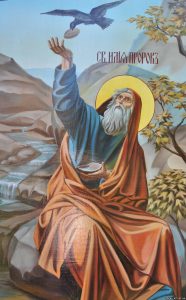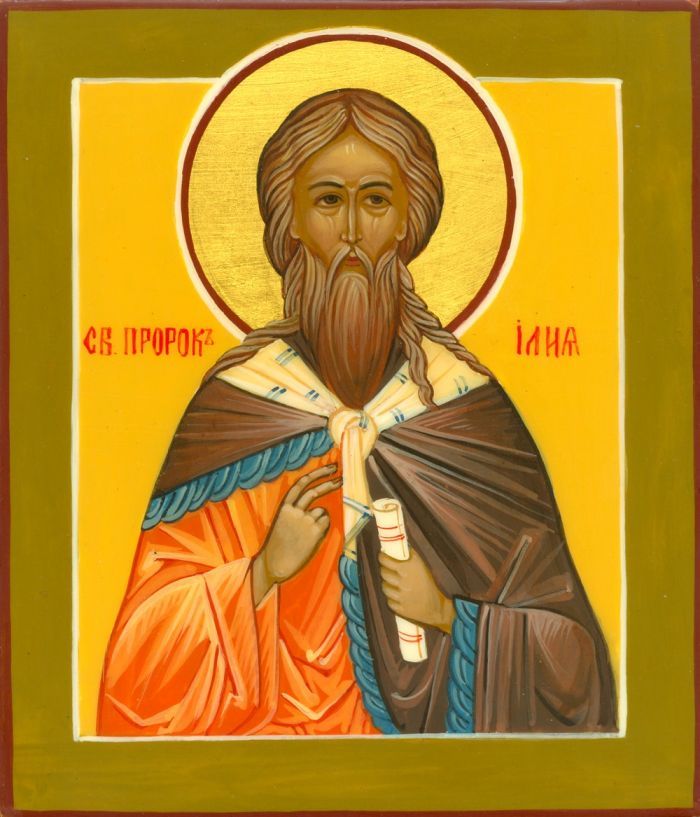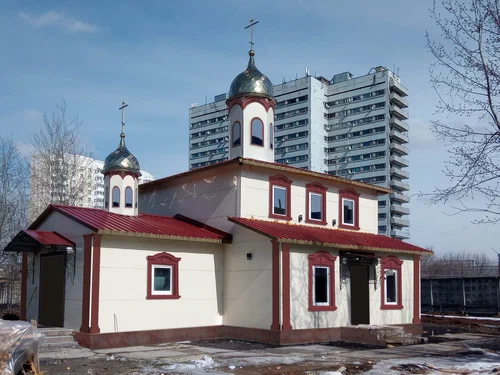Church of St. Elijah in Solntsevo

The temple in the name of the Prophet of God Elijah in the Solntsevo area is an Orthodox church under construction, being built as part of the 200 Temples program. In 2017, a cross of worship was installed at the construction site, where regular prayer services began. In 2019, regular services began to be held in the temporary building. In 2023, a temporary church with a capacity of 200 people was built by the parishioners, which made it possible to expand the liturgical life of the community. The Prophet Elijah is one of the greatest biblical prophets who lived in the 9th century BC in the Kingdom of Israel. According to his place of birth in the city of Tisva, he is also called Elijah the Tishbite. His entire life and prophetic ministry were devoted to the struggle for the purity of faith and countering the idolatry that engulfed the people of Israel during the reign of King Ahab and his wife, the Phoenician Jezebel. Elijah appeared in Samaria, the capital of the Kingdom of Israel, to rebuke the king for his impiety and apostasy from faith in the true God. He predicted that a three-year drought would fall on the earth for the sins of the people. Despite the ordeal, Ahab did not repent, and Jezebel continued to plant the cult of Baal and Ashtaroth, persecuting the prophets of the Lord. In response, Elijah openly challenged the priests of Baal and staged a trial on Mount Carmel. He suggested checking whose God was the true one: the priests of Baal should have called upon their deity, and he should have called upon the Lord. In response to the prayer of the prophet Elijah, fire from heaven struck the altar, while the priests of Baal could not achieve any miracle. This event demonstrated the almighty power of Yahweh, after which the prophet destroyed the priests of Baal, and soon the long-awaited rain fell on the earth again. However, this did not bring peace.: Jezebel swore revenge on the prophet, and he was forced into hiding. He took refuge by the stream of Horath, where crows fed him, and then went to Sarepta of Sidon, where he met a poor widow, to whom he miraculously multiplied the supplies of flour and butter, and then resurrected her dead son. After his wanderings, Elijah found himself on Mount Horeb, where the Lord revealed His presence to him not in a storm, fire, or earthquake, but in a quiet breeze, which became a symbol of the spiritual depth and true power of God`s word. The prophet continued his mission, exposing King Ahab, including for the unjust seizure of Naboth`s vineyard. Later, he rebuked Ahab`s son, King Ahaziah, who in his illness turned for help not to God, but to the pagan deity Beelzebub. In the last years of his life, Elijah passed on the prophetic ministry to his disciple Elisha, and according to the Bible, he was taken to heaven alive in a fiery chariot drawn by fiery horses. This event became unique: before him, only the Old Testament righteous man Enoch was taken away to a special secret place, where, according to Orthodox theologians, both righteous men are waiting for the end of time in order to reappear into the world. Elijah the Prophet is revered as one of the greatest saints of the Old Testament and is a symbol of zeal for God, courage and spiritual strength. In the Orthodox tradition, he holds a special place as a formidable denouncer of lawlessness and patron saint of soldiers, especially the airborne troops of Russia.
Address: Moscow, Aviatorov St., vl. 9/1

